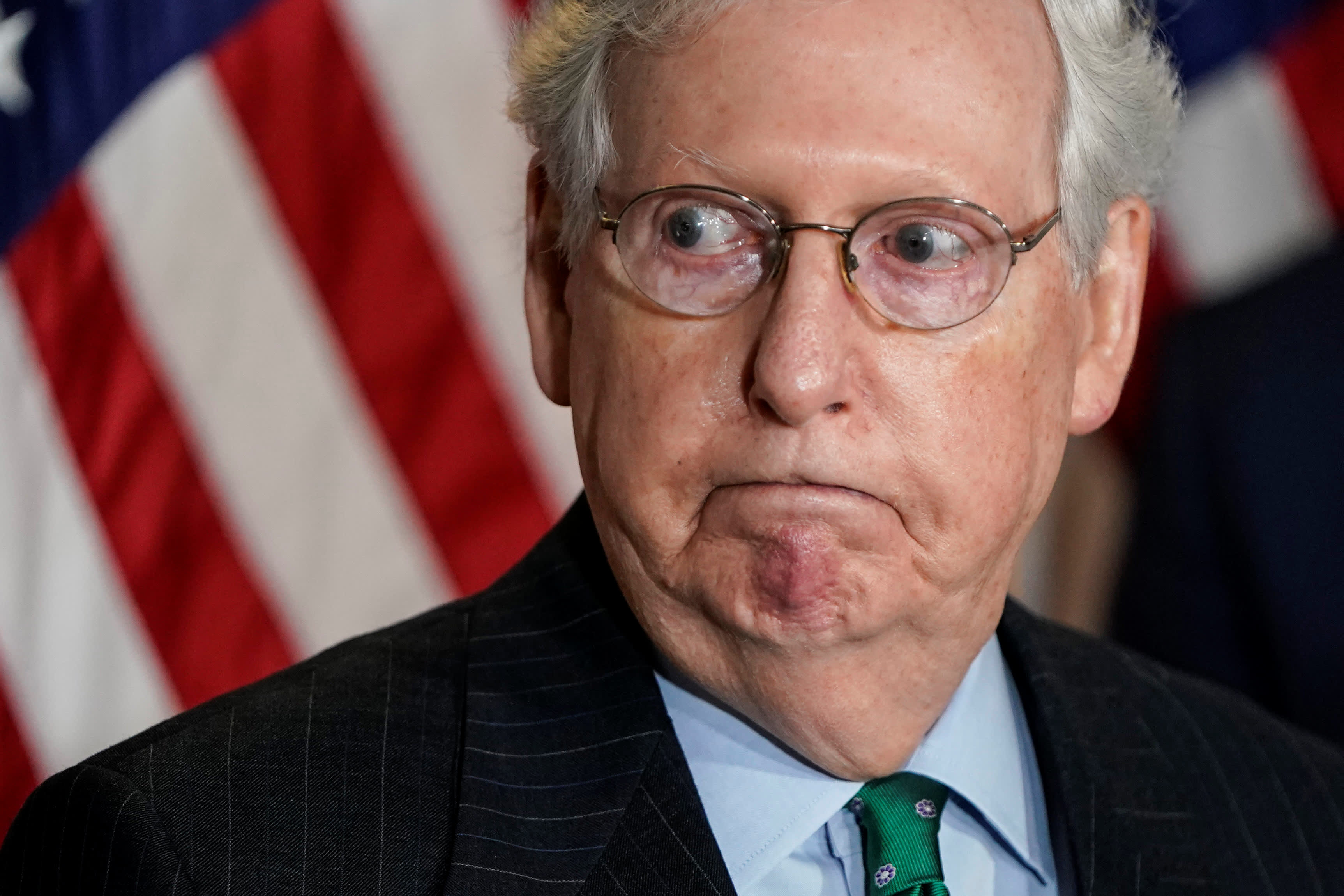Mitch McConnell says a coronavirus stimulus package is ‘unlikely in the next three weeks’

Senate Majority Leader Mitch McConnell (R-KY) speaks to the media after a lunch with Republican Senators, on Capitol Hill in Washington, September 30, 2020.
Joshua Roberts | Reuters
Congress likely will not pass another coronavirus stimulus package before the Nov. 3 election, Senate Majority Leader Mitch McConnell said Friday.
The White House and Democrats have restarted last-ditch talks toward an elusive relief deal. Speaking in his home state of Kentucky, the Republican said “the situation’s kind of murky” while negotiators try to “elbow for political advantage” as Americans cast their ballots.
“I’d like to see us rise above that like we did back in March and April, but I think that’s unlikely in the next three weeks,” he said.
Officials in Washington have disagreed over how much money to put in a fifth pandemic aid package as economic pain for millions of Americans sharpens during a sluggish recovery. After he told his administration to pull out of talks earlier this week, President Donald Trump then renewed his push to inject trillions into the economy during his reelection bid.
House Speaker Nancy Pelosi and Treasury Secretary Steven Mnuchin would still have to strike an agreement, then write a bill expected to cost at least $1.5 trillion. The package would have to get through both the Democratic-held House and GOP-controlled Senate — where Republicans have expressed concerns about spending trillions more on the federal response to the virus.
McConnell’s comments follow days of confusion about exactly what the president wants in an aid agreement. He called off talks Tuesday, then reversed course and called for stand-alone bills to address direct payments to Americans, small business loans and aid to airlines to cover payroll.
His administration then signaled he would support a comprehensive deal that includes those provisions and potentially others. Pelosi and Mnuchin spoke Thursday about whether they could quickly find common ground on broad legislation.
Pelosi wants a bill that would reinstate the $600 per week enhanced unemployment benefit that expired in July and send at least $436 billion more in relief to state and local governments. She also aims to put tens of billions dollars more into Covid-19 testing, contact tracing and vaccine development. The House passed a plan with a $2.2 trillion price tag earlier this month.
Trump has oppose more state and municipal aid, though Mnuchin included $250 billion for those governments in his previous $1.6 trillion offer to Pelosi. The Treasury secretary also proposed extra jobless benefits of $400 per month.
Congress has failed to send new relief money in months as the U.S. health-care system buckles under a rampaging outbreak. The country reported more than 56,000 new infections Thursday, the highest single-day mark in nearly two months.
As the virus spread to Trump and throughout his White House and campaign over the last week, Pelosi ramped up her criticism of how the president has handled the pandemic. Writing to House Democrats on Friday, the California Democrat admonished the president for downplaying the virus even after he was hospitalized and received treatment for Covid-19.
“This week, when President Trump walked away from the coronavirus relief negotiations, he walked away from a strategic plan to crush the virus – showcasing his deadly contempt for science, for governance and for the health and lives of the American people,” she wrote.
A White House spokesman did not immediately respond to a request to comment on Pelosi’s letter.
As millions of Americans remain unemployed, lifelines to sustain them through economic shutdowns earlier this year have expired in recent months. The supplemental unemployment insurance and a federal moratorium on evictions ended, as did the window to apply for Paycheck Protection Program small business loans.
U.S. jobless claims remain stubbornly high as hiring starts to slow. Airlines and other major U.S. companies have moved toward furloughing or laying off tens of thousands of workers.
This week, Federal Reserve Chair Jerome Powell urged Congress to pass more fiscal stimulus, saying that failing to do so could “lead to a weak recovery, creating unnecessary hardship for households and businesses.” He said Congress had a low risk of “overdoing” relief.




